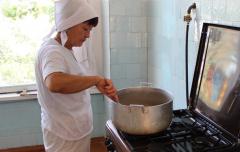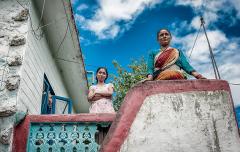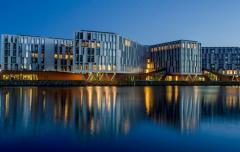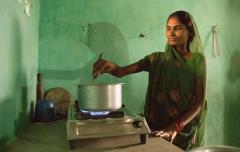Partner Spotlight: United Nations Economic and Social Commission for Western Asia
What is ESCWA’s mission?
ESCWA is one of the five regional commissions created by the UN to fulfil the economic and social goals set out in the UN Charter by promoting cooperation and integration between countries in Western Asia.
Nowadays, ESCWA acts as a modern, agile, vigorous institution, embracing forward thinking and adopting new technologies to implement its vision as an innovative catalyst for a just and flourishing Arab region. ESCWA encourages regional integration, exchange of experience and best practices and raise global awareness on the circumstances, challenges and needs of its member countries.
ESCWA region covers 18 Arab countries: Bahrain, Egypt, Iraq, Jordan, Kuwait, Lebanon, Libya, Mauritania, Morocco, Oman, the State of Palestine, Qatar, Saudi Arabia, the Sudan, the Syrian Arab Republic, Tunisia, the United Arab Emirates and Yemen.
Our mission is to be a powerful unifying voice, trusted convener, effective policy adviser and innovative knowledge generator for the region by partnering with our Members States and their people. ESCWA’s objectives are guided by the 2030 Agenda for Sustainable Development.
As a commission, we are active in many areas including economic and social development; integration, gender and women issues; governance and conflict issues; sustainable management; and development of natural resources.
As the new Executive Secretary of ESCWA, what do you hope to achieve?
ESCWA strives to achieve equitable prosperity and dignified lives to Member States and their peoples.
ESCWA will maintain its support to members and its regional and international partners to foster socio-economic cooperation, overcome the region’s many development challenges (including its critical natural resource problems), benefit from the available opportunities to advance the implementation of the SDGs, support gender equality, and create a promising future for youth and the upcoming generations.
The path to achieving the 2030 Agenda requires diligent work on combating poverty and unemployment, preserving the middle class, empowering women and youth, sustainably managing its water, land and energy resources, and supporting through development projects and appropriate technology-use the creation of opportunities to youth.
How does ESCWA support SDG7?
Energy is the source of and a solution to many global and developmental problems, and it is the golden thread that connects all the SDGs. To this end, ESCWA focuses on providing economic and social policies, capacity building, technical advice, and leading research and reports to help its members better track and achieve the SDG7 targets and related goals (e.g. 1, 5, 11, 12, 13).
ESCWA is also involved in other related activities, including fostering regional and country-level exchange among water, agriculture and energy counterparts through the implementation of a Regional Initiative on the Water-Energy-Food Nexus in the Arab Region in coordination with the League of Arab States and other regional partners. Other related projects also include promoting Renewable Energy Investments and Energy Efficiency for Climate Change Mitigation and Sustainable Development and the implementation of a Regional Initiative for Promoting Small-Scale Renewable Energy Applications in Rural Areas of the Arab Region.
Achieving SDG7 was also reviewed during the High-Level Political Forum 2018 whereby ESCWA presented and shared the Arab region’s progress in achieving the set targets on achieving sustainable energy and provided a snapshot of how far the Arab region is from achieving affordable and clean energy, including challenges and priority actions. Another area stressed during the forum was the “interlinkages between water, food and energy in the Arab region” and the required local efforts to build capacity and achieve coherent policy resolutions.
ESCWA is also a member of UN Energy through which it collaborates with other UN agencies in the field of energy. ESCWA is also involved in the multi-stakeholder SDG7 Technical Advisory Group, which met in early 2019 and with which it will participate in the SDG7 Policy Briefs in support of 2019 High-Level Political Forum and the SDG Summit in September 2019. ESCWA also supports regional reporting on SDG7 through its regional publication on Tracking SDG7: The Energy Progress Report 2019 – Arab Region.
What do you see as the SDG7 priority areas in Western Asia to meet the 2030 targets?
As the Arab region depletes its energy savings, productive land and water resources, and pollutes its air faster than any other region in the world, the business-as-usual scenario in the Arab region is unsustainable in many cases.
SDG7 identified priority areas for Western Asia in order to meet the 2030 targets include:
- Enhancing the quality and access to modern energy in the Arab region, especially in the least developed countries (Mauritania, Sudan, Yemen)
- Tackling the widespread energy inefficiencies across all economic sectors of the region through prioritizing policies, incentives, market structure and regulatory measures to encourage improvement in energy efficiencies.
- Increasing the share of renewable energy sources in the region’s energy mix by overcoming the highly regulated utility markets and high subsidies on fossil fuel-based products, technological barriers and commercial viability.
Other broader focus areas include developing, implementing and enforcing suitable, integrated and proactive policies and institutional frameworks, building institutional capacity in monitoring and data collection systems, strengthening local governance and communication, and developing local manufacturing of clean energy technology components.
What role does ESCWA play in meeting these SDG7 regional targets?
Among the main challenges facing the region in achieving SDG7 targets are initiating proactive policymaking, building institutional capacity, transparency and accountability, strengthening information quality and raising public awareness.
ESCWA supports its member states in meeting the SDG7 regional targets through an integrated lens by acting as a regional think tank, providing policy advice and platform for capacity building, and transfer of knowledge based on research, science-policy interface, trainings and dialogue.
ESCWA brings together regional and international expertise to enhance capacities of member states, foster multi-stakeholder partnerships to achieve sustainable development and enhance cooperation to facilitate the acceleration of sustainable energy access, clean energy research and technology (including renewable energy and energy efficiency), cleaner fossil-fuel technology, and promoting investments in clean energy infrastructure.
What does your partnership with SEforALL focus on?
ESCWA’s partnership with SEforALL focuses on promoting regional integration and sustainable energy and economic development to accelerate the achievement of SDG7 in the Arab region. Cooperation areas include promoting the use of renewable energy sources in the region, energy efficiency, water-energy-food nexus and the SEforALL Middle East Hub, which is hosted by the Islamic Development Bank. Other partnership activities include the SEforALL Forum, the High-Level Political Forum, UNFCCC COP and the Future Energy Summit.




